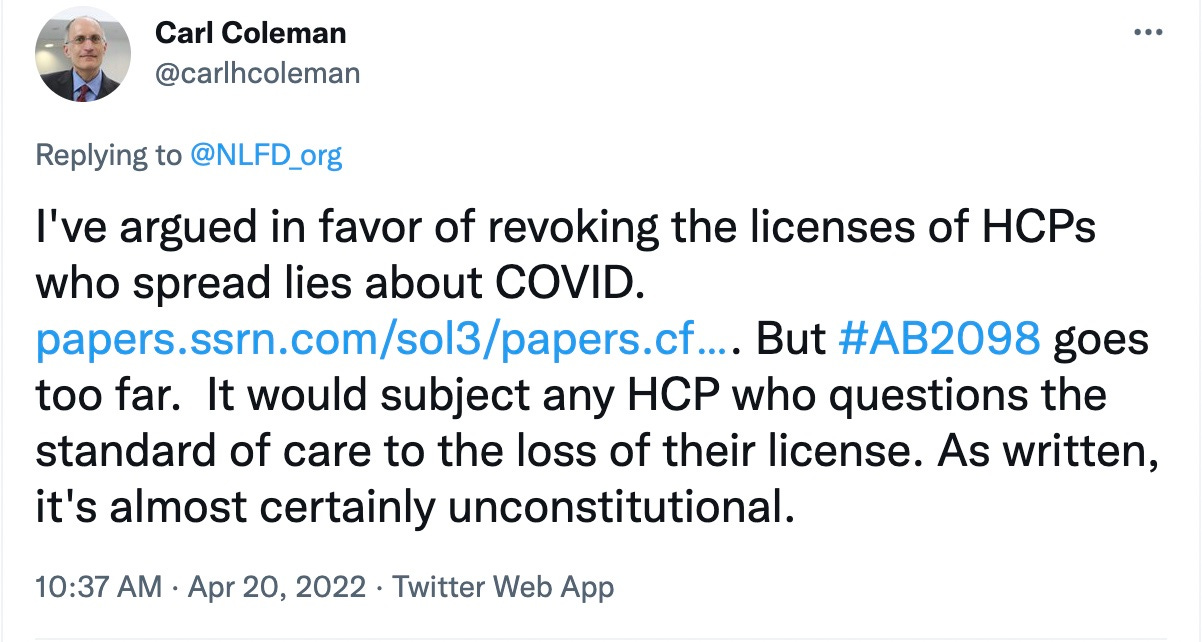AB 2098: An Unconstitutional Infringement on Doctors’ Free Speech Rights
California legislators want to punish physicians for disseminating misinformation regarding Covid-19. It's not just unconstitutional; it's bad policy.
Assembly Bill 2098 has already passed the State Assembly, and the Senate Committee on Business, Professions, and Economic Development will consider the bill at a hearing on Monday, June 27. Here are the top reasons we oppose this bill.
Since AB 2098 explicitly restricts speech based on its content, it is presumptively invalid. It could only be upheld if it’s narrowly tailored to serve a compelling state interest. It cannot possibly be argued that the blunt weapon that AB 2098 represents is narrowly tailored.
“Misinformation” is protected by the First Amendment. There is no general exception to the First Amendment that applies to false statements. It is a long-held precept of free speech jurisprudence that more speech is the appropriate remedy to false speech, rather than censorship.
The chilling effect on speech would render the bill unconstitutional, regardless of how it is enforced. The language of AB 2098 is so broad and so vague that it would tend to cause conscientious doctors to censor themselves, violating both due process and free speech rights. It would also risk stifling the process of scientific inquiry more generally.
The amendments did not go far enough. The bill still restricts constitutionally protected speech and still risks chilling speech due to vagueness. For example, the bill refers to a “contemporary scientific consensus,” but Covid-19 is too new to have reached a settled consensus.
The bill does not address the problem identified. The bill’s authors and supporters point to the problem of doctors who widely amplify falsehoods about Covid-19, but silencing them would violate the Constitution. To remedy the constitutional problems, it would have to be pared down to the point that it would simply duplicate existing law. Proponents are unable to cite a single example of a harm that could be prevented.
There is a crisis of institutional credibility, not a crisis of misinformation. Misinformation has always existed, but what has changed is that the public no longer trusts the government and the medical establishment to be reliable sources of information. Censorship could only succeed in creating a backlash that would further erode that trust.




